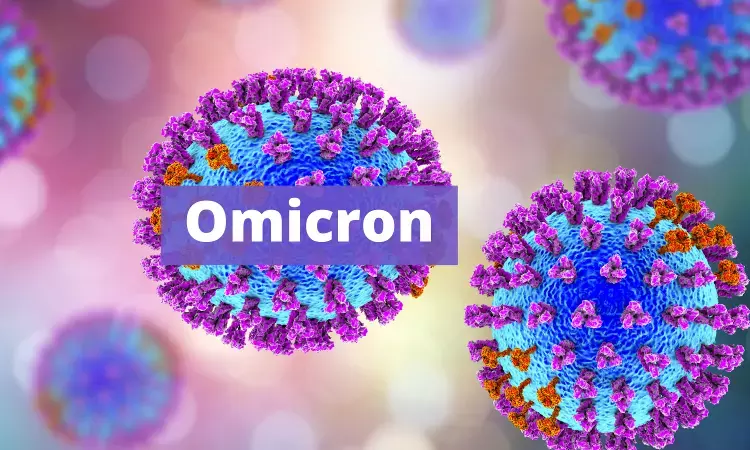- Home
- Medical news & Guidelines
- Anesthesiology
- Cardiology and CTVS
- Critical Care
- Dentistry
- Dermatology
- Diabetes and Endocrinology
- ENT
- Gastroenterology
- Medicine
- Nephrology
- Neurology
- Obstretics-Gynaecology
- Oncology
- Ophthalmology
- Orthopaedics
- Pediatrics-Neonatology
- Psychiatry
- Pulmonology
- Radiology
- Surgery
- Urology
- Laboratory Medicine
- Diet
- Nursing
- Paramedical
- Physiotherapy
- Health news
- Fact Check
- Bone Health Fact Check
- Brain Health Fact Check
- Cancer Related Fact Check
- Child Care Fact Check
- Dental and oral health fact check
- Diabetes and metabolic health fact check
- Diet and Nutrition Fact Check
- Eye and ENT Care Fact Check
- Fitness fact check
- Gut health fact check
- Heart health fact check
- Kidney health fact check
- Medical education fact check
- Men's health fact check
- Respiratory fact check
- Skin and hair care fact check
- Vaccine and Immunization fact check
- Women's health fact check
- AYUSH
- State News
- Andaman and Nicobar Islands
- Andhra Pradesh
- Arunachal Pradesh
- Assam
- Bihar
- Chandigarh
- Chattisgarh
- Dadra and Nagar Haveli
- Daman and Diu
- Delhi
- Goa
- Gujarat
- Haryana
- Himachal Pradesh
- Jammu & Kashmir
- Jharkhand
- Karnataka
- Kerala
- Ladakh
- Lakshadweep
- Madhya Pradesh
- Maharashtra
- Manipur
- Meghalaya
- Mizoram
- Nagaland
- Odisha
- Puducherry
- Punjab
- Rajasthan
- Sikkim
- Tamil Nadu
- Telangana
- Tripura
- Uttar Pradesh
- Uttrakhand
- West Bengal
- Medical Education
- Industry
Study explains faster transmission of the Omicron virus and why third dose might be needed

Hong Kong: A team of researchers from Hong Kong University (HKU) has given an explanation on why the Omicron variant of the SARS-CoV-2 virus transmits faster. They reported that the new variant multiplies 70 times faster in the bronchi than the original SARS-CoV-2 and the Delta virus.
According to the authors, these are the first findings on how the Omicron variant (B11529) infects the respiratory tract. Also, they found that Omicron infection in the lung is significantly lower than the original virus, which may be an indicator of lower disease severity.
In the study conducted by Michael Chan Chi-wai and the team, the researchers used lung tissue samples for comparing infection with the recent Omicron variant compared with Delta and the original virus from 2020. The study is under peer review for publication.
They found that Omicron replication was 70 times higher than the other two viruses 24 hours after infection. Also, they found that Omicron replication was less efficient in deeper lung tissue—more than 10 times lower than the original virus giving a potential clue on its lower severity.
In an HKU press release, Michael Chan emphasized that virus replication is not the only factor driving disease severity, host immune response can also play a role, such as the immune system dysregulation that leads to cytokine storm.
By infecting more people, a very infectious virus may cause more severe disease and death, even if the virus itself is less pathogenic, he said.
He also said by infecting more people, a very infectious virus may cause more severe disease and death, even if the virus itself is less pathogenic. Considering earlier findings that Omicron can partially escape immunity from vaccination and past infection, the overall threat will likely be significant, Chan Chi-wai said.
In other research development, a separate team from HKU found that people who received two doses of either the Pfizer-BioNTech or China's Coronavac vaccine don't produce enough antibodies against Omicron.
The researchers used blood from people who had received both doses of one of the two vaccines to explore antibody response to Omicron. Each group consisted of 25 people. In addition, they also explored how well the serum antibodies neutralized the Alpha, (B117), Beta (B1351), and Delta variants.
They found that only 5 of the Pfizer recipients produced neutralizing antibodies against Omicron. This translates to a 36- to 40-fold reduction compared with the original SARS-CoV-2 virus. However, none of the recipients of the Coronavac vaccine had enough antibodies to neutralize Omicron.
The findings highlight a breakthrough infection risk in vaccinated people and those who had previous infections. Also, the results support the use of third vaccine doses. Although it is still not clear if the third dose of Coronavac will shore up the antibody response.
Dr Kamal Kant Kohli-MBBS, DTCD- a chest specialist with more than 30 years of practice and a flair for writing clinical articles, Dr Kamal Kant Kohli joined Medical Dialogues as a Chief Editor of Medical News. Besides writing articles, as an editor, he proofreads and verifies all the medical content published on Medical Dialogues including those coming from journals, studies,medical conferences,guidelines etc. Email: drkohli@medicaldialogues.in. Contact no. 011-43720751


